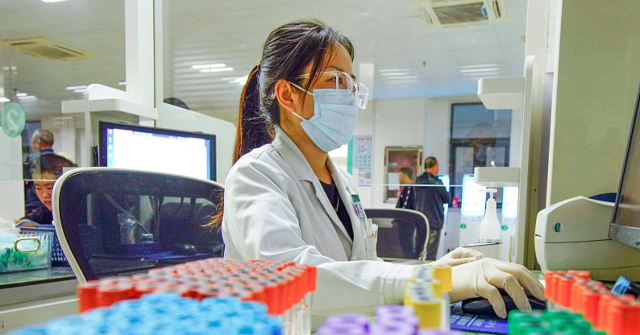Three Chinese research scholars affiliated with a University of Michigan laboratory have been criminally charged for allegedly conspiring to smuggle biological materials into the United States, marking the latest incident in a series of federal investigations targeting national security vulnerabilities tied to Chinese nationals and foreign research partnerships.
Federal prosecutors announced Wednesday that three citizens of the People’s Republic of China — Xu Bai, 28, Fengfan Zhang, 27, and Zhiyong Zhang, 30 — face criminal charges related to an alleged scheme to smuggle concealed biological materials into the United States. All three were J-1 visa holders conducting research at the University of Michigan’s laboratory overseen by Professor Xianzhong “Shawn” Xu. Bai and F. Zhang were charged with conspiracy to smuggle biological materials, while Z. Zhang was charged with making false statements to federal agents.
According to the U.S. Department of Justice, Bai and Fengfan Zhang received multiple international shipments from Chengxuan Han, a Chinese national and Ph.D. candidate from Huazhong University of Science and Technology in Wuhan, China. The shipments contained biological substances related to roundworms, which were not disclosed to U.S. Customs and Border Protection. The case follows Han’s own recent conviction and removal from the United States after she pleaded no contest to three counts of smuggling and one count of making false statements. Authorities found that Han had also erased data from her electronic devices shortly before entering the U.S.
The University of Michigan terminated the three defendants’ enrollment after they declined to participate in a mandatory meeting and refused to cooperate with an internal investigation following the arrest of Chengxuan Han. Before leaving the country, the defendants rescheduled multiple international flights and ultimately attempted to depart from John F. Kennedy International Airport on October 16, 2025. During inspection, federal authorities allege that Zhiyong Zhang made false statements concerning Han, while Xu Bai and Fengfan Zhang acknowledged receiving packages from her, including after her arrest or removal from the United States.
This latest case adds to mounting concerns over repeated incidents involving Chinese nationals and sensitive biological research at U.S. institutions. In June, United States authorities charged Yunqing Jian and Zunyong Liu with smuggling Fusarium graminearum, which scientific literature describes as a potential agroterrorism weapon, into the United States for research at the University of Michigan. Prosecutors allege that Jian received Chinese government funding and that she had ties to the Chinese Communist Party.
In July, the U.S. Department of Education reported that it had opened a foreign funding investigation into the University of Michigan. The Department alleged inaccurate and incomplete disclosures and asserted that some foreign funders appeared to have been misidentified as nongovernmental even though they were directly affiliated with foreign governments including China.
The Department also referenced UM’s previous ties to China including that UM ended its twenty year partnership with Shanghai Jiao Tong University in January 2025 after congressional national security concerns. It also cited recent criminal charges in which Chinese nationals were accused of smuggling biological materials into UM associated laboratories. The Department indicated it will determine the true scope of foreign funding and influence and whether UM complied with federal disclosure laws.


















